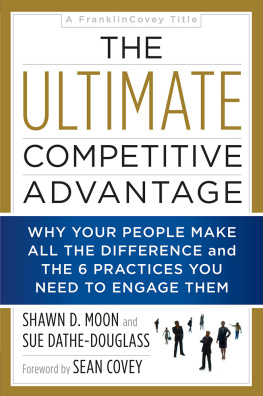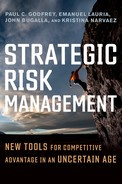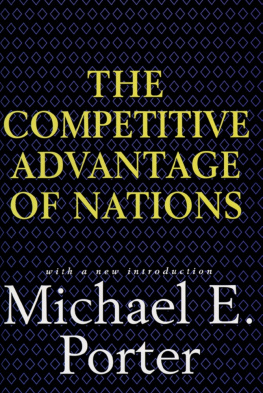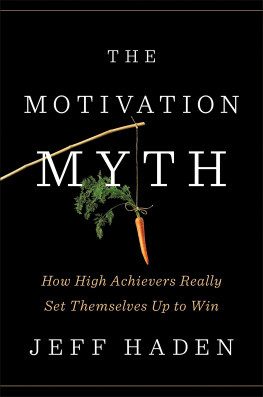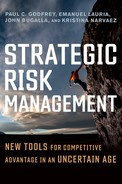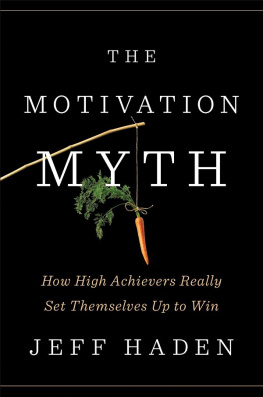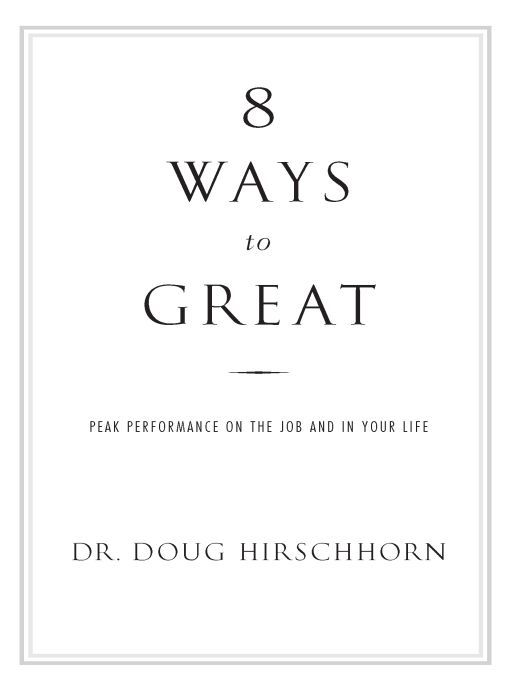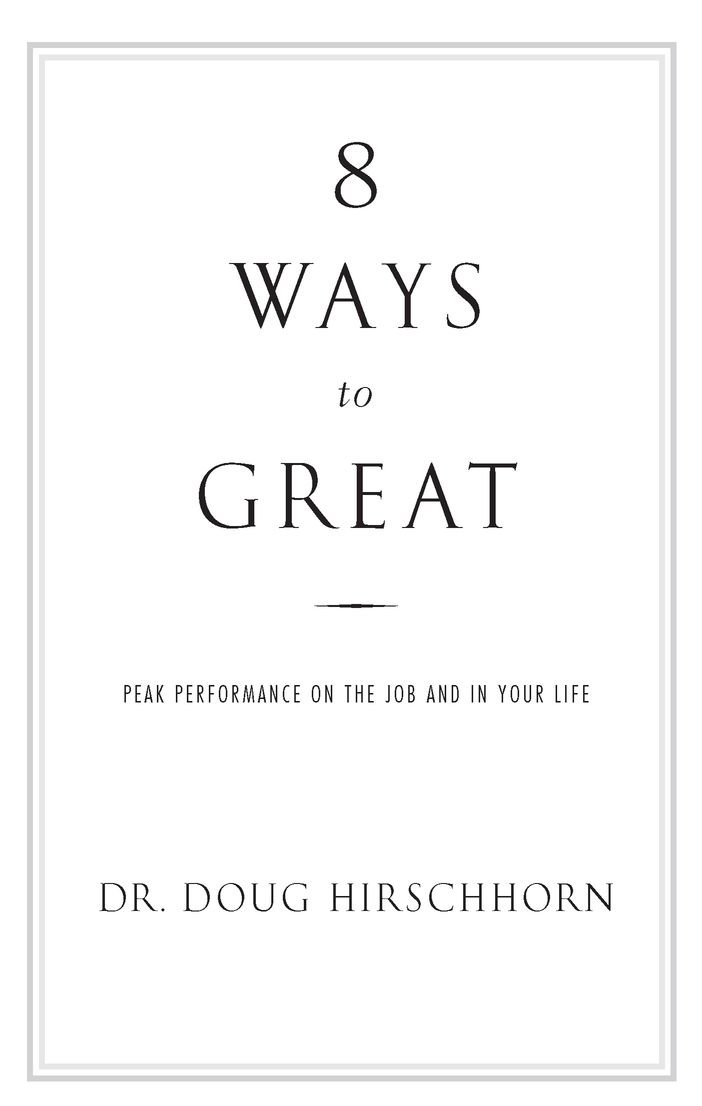Table of Contents
G. P. PUTNAMS SONS
New York
To my wife, Amy.
WHY THE 8 PRINCIPLES ARE GOING TO HELP YOU
Youre smart and you want to be smarter, youre good and you want to be better, but you dont really understand why the kind of advice I give to elite traders or hedge fund managers can possibly have meaning for you. What does their business have to do with yours? Dont they operate in an entirely different ballpark? And arent these the same guys who blew up and lost billions of dollars in the most recent stock market meltdown?
The answers to those questions are both yes and no. Yes, top traders are probably handling much larger sums of money than you on a daily basis, and yes, many of them did lose a lot of money when the market went into free fall. But no, not all of them blew up, and not all of them are crooks. Some of them (those who happen to be my clients) are coming straight through the eye of the storm with the same high level of integrity they have always had, and while their ship may be beaten up a little, it is still very much intact and sailing strong.
More important, however, this book isnt about how to invest and make millions in the stock market. I leave that to the countless others who choose to write about some system or strategy theyve found for making money in the markets. This book is about how super-successful people think. Because how they think is the key to how well they do. And the big news is that you can learn to think that way, too.
True success begins with a state of mind. But it takes specific actions and behaviors to move from intentions into action and get results. The eight principles outlined in this book are those used by all top performers in every field of endeavorbe it sports, business, politics, education, or anything else they choose to pursue.
I know this because my own career took several twists and turns before I found myself working with mega-traders as a peak performance coach. I started out as a clerk on the floor of the Chicago Mercantile Exchange and then eventually became a trader on the floor of the Chicago Board of Trade. When I left trading after three years because a herniated disc in my lower back made it incredibly painful for me to stand all day on the trading floor, I was sort of at loose endsas we all are from time to time. My contemporaries were graduating from law schools, medical schools, or MBA programs and already building their careers, and I felt like the loser who had just wasted three years of my life. My work experience as a floor trader is not really a transferable skill in the real-world job market. I had no idea what I was going to do next, but I thought about being a baseball coach because Id played Division 1 baseball when I was a student at Colgate University. The only problem with that career path was that I found out Id need a masters degree if I wanted to coach on the college level. I wasnt thrilled with the idea of having to go back to school, but when I found out about the field of sport psychology I was intrigued enough to pursue it. My rationale was that since the commissioner of baseball at the time was a lawyer by training, I could certainly be a baseball coach with a degree in sport psychology. I knew it would be a long time before I made much money, but if Id learned one lesson on the trading floor, it was that money can come and go very quickly, and, in the end, if you dont love what you do you wont be successful over time.
While I was still in graduate school I was offered an internship with the University of Connecticut baseball team. It was while I was working with the members of that team as a sport psychology consultant that the lightbulb went on. I realized that everything I was doing to coach a slumping batter out of his funk I could have used to coach myself when I was trading and bummed out because I was losing money. The psychology was exactly the same. Once I figured that out, I knew I was onto something: the difference between being a winner and being a loser has at least as much (if not more) to do with mental attitude as it does with your particular skills.
Thats when I put together the proposal for my first book, The Trading Athlete, and started to make a name for myself as the first person with trading experience and a degree in sport psychology to apply that knowledge to improving performance in the trading world.
Since then, in addition to coaching my clients one-on-one, Ive conducted hundreds of workshops for thousands of people working in financial institutions, multibillion-dollar hedge funds, and corporations across the country. I do a weekly video blog for CNBC and have appeared on the Today show, CNBCs Fast Money, Squawk on the Street, The Call, Power Lunch, Street Signs, Closing Bell, On the Money, The Big Idea with Donny Deutsch, Millionaire Inside, and many other programs, as well as on VH1s The Fabulous Life. And in each of my workshops as well as on television Ive discussed the principles Ill now be teaching you.
The point is that I didnt teach baseball players how to hit the ball, and I dont teach my clients how to invest. Those are skills they already have. What I coach them on is how to think so that they can do what they already do well even better. And with this book, I can do the same for you.
This doesnt mean that if youre tone deaf I can teach you to sing opera; I cant. I am not a magician. I dont create talent; I simply help people to achieve their own potential. But if you have a great operatic voice and you want to take your career to the next level, the skills I teach in this book will help you to do thatso long as youre willing to commit to the program and walk the walk. The people I work with are already extremely good at what they do. But they arent happy with just being A- players. They want to get an A+ and theyll commit to doing whatever it takes to get to that level. In that respect theyre like bodybuilders who, to the laymans eye, look as if they have a perfect physique but who see room for improvement in themselves, even if it is just losing that last one-quarter percent of body fat. And because they see the opportunity, they are compelled to make the mental, physical, and personal sacrifices required to achieve that level of excellence.
For my clients, being good enough just isnt good enough; they want to be the best. Its not my job to advise them on seeking more balance in their lives or help them deal with their personal relationship issues. Thats the work of a life coach or even a therapist. I am not a life coach, I am not a therapist, and I am not a licensed psychologist. I am a peak performance coach who is hired to help the elite identify areas for improvement, map out a plan of action, and then hold them accountable so they can achieve it.
The interesting thing is that, in most respects, these high fliers arent any different from the rest of us. Theyre all flawed human beings, just like you and mein some cases even more so. The one thing that does set them apart is that theyve learned to think differently from most people. You can learn to think the way they do; it isnt magicyouve just got to want it badly enough to stop making decisions that are based on pure emotion or instinct and start to stick to your game plan, even when its the last thing you want to do. (In fact, thats when you need to stick to it the most.) Then you need to get comfortable with the idea that you will be uncomfortable at times and will be taking risksalthough, if you follow the rules Im going to lay out for you and stick with the plan, they will always be smart, calculated risks.


